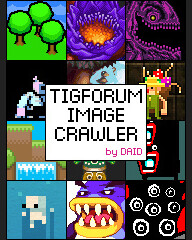Lack of Seriousness
By: Derek Yu
On: December 6th, 2007
I realize that some may be irritated that I’m not posting something that’s directly about games, although I think it’s very appropriate. But forgive me if it’s not to your taste.
Dan “Data” Tabar sent me a link to this, a shortened version of Kurt Vonnegut’s final interview, and told me that he found it very much in tune with his experience as a game developer. With that in mind, I read the interview, and was struck by how right he was about that. Though Vonnegut did not mention games once, you can bet that what he says rings just as true for this creative pursuit as any other.
That’s a really interesting analogy. I feel like games, to a certain extent, hand you that viola, but are also there to play with you, and guide you through the music. In essence, it is both happening to you and you are creating it. I wonder what he would have thought of that.
Anyway, I’ve always looked up to Vonnegut. His plain way of writing and speaking, his insight, and his sense of humor have all appealed to me as an artist and a person. I hope you find some inspiration from him, too.
(Photo Source: Grant Delin/Corbis Online)
-
http://joshg.wordpress.com josh g.
-
Smithy
-
toastie
-
BigMoose
-
toastie
-
Al King
-
Eden
-
LurkingCrassZero
-
rinkuhero
-
Smithy
-
deadeye
-
Not Sure
-
Calanctus
-
Lee-Ham
-
Shih Tzu
-
Eden
-
Skaldicpoet9
-
Smithy
-
Skaldicpoet9
-
Al King
-
I Like Cake
-
Anthony Flack
-
http://akktivecarbon.uw.hu !CE-9
-
Turgid


